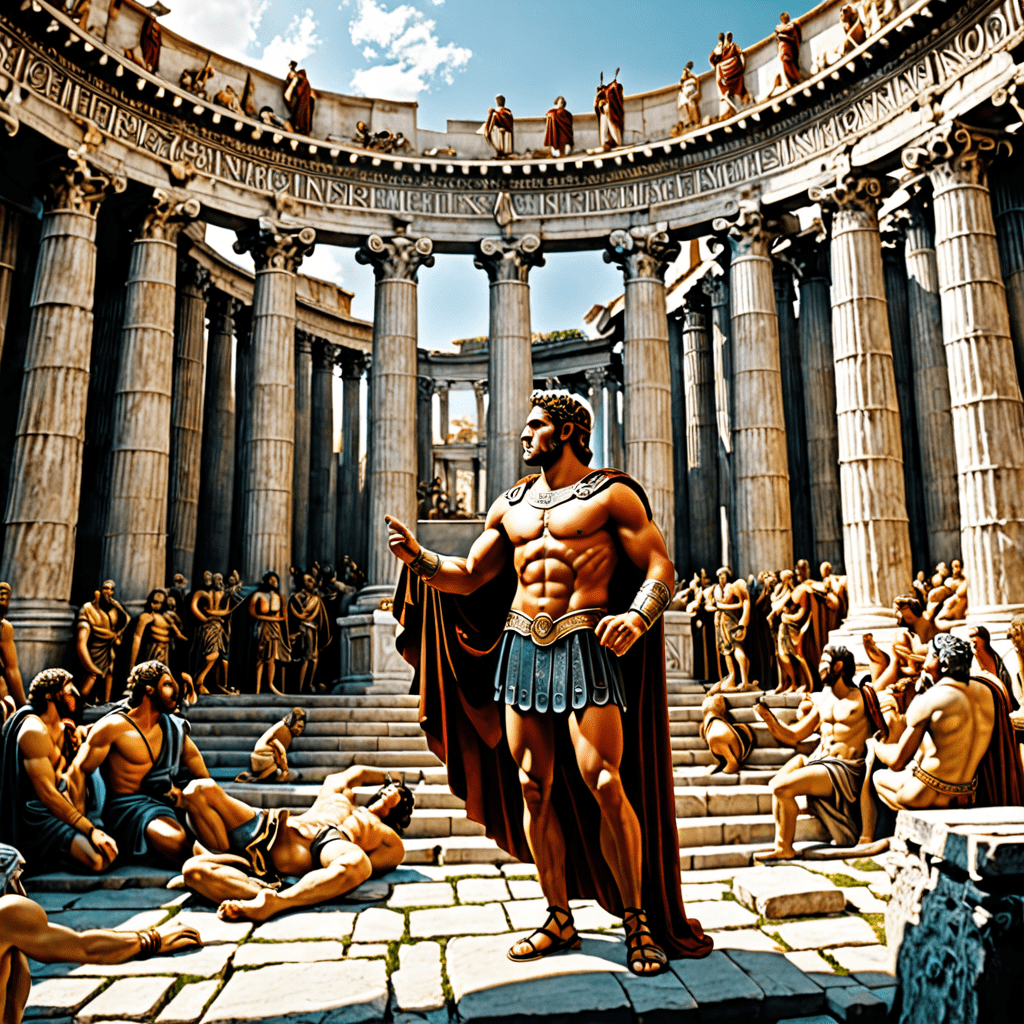Roman Mythology: Exploring the Concept of Politics and Power
Roman mythology is rich with tales of gods, goddesses, and mythical beings who wielded immense power and influence over the realms of politics and governance. Let’s dive into how these ancient myths reflected and shaped ideas surrounding wield power and politics in Roman society.
The Gods and Power Dynamics
Central to Roman mythology are powerful gods such as Jupiter (Zeus), Juno (Hera), and Mars (Ares), each representing different aspects of power, governance, and warfare. Jupiter, the king of gods, symbolizes supreme authority and justice, often portrayed as the ultimate political figure whose decisions shaped the fates of mortals and immortals alike. Juno, as the queen of gods and protector of the Roman state, embodies the political aspirations and challenges faced by rulers.
Mythical Heroes and Leadership
Mythical heroes like Romulus, the legendary founder of Rome raised by a she-wolf, and Julius Caesar, often mythologized as a descendant of the goddess Venus, embody the blend of myth and history that underscored Roman political narratives. These figures were elevated to near-divine status, serving as models of leadership and power for the Roman people.
Conflict and Divine Intervention
Myths involving power struggles among gods and mortals, such as the Trojan War and the rivalry between Aeneas and Turnus in the Aeneid, reflect the complex nature of politics and the pursuit of power in Roman mythology. Divine intervention, through omens, prophecies, and direct involvement of deities in mortal affairs, often shaped the outcome of political events and the destiny of individuals.
The Legacy of Roman Mythology
Through the narratives of Roman mythology, ancient Romans sought to define and justify their political institutions, leadership structures, and societal values. The myths served as a moral compass, illustrating the consequences of hubris, valorizing traits like loyalty, courage, and magnanimity, and emphasizing the interconnectedness between power, fate, and individual agency.
FAQ: Roman Mythology and Politics
What role did mythology play in Roman politics?
Mythology was intertwined with political power in ancient Rome. Emperors often linked themselves to gods or heroes to legitimize their rule, while myths were used to justify conquests and establish national identity.
How did Roman mythology influence the concept of power?
Roman mythology portrayed gods as wielding immense power and authority, reflecting the political structures of Roman society. Emperors were sometimes likened to gods, emphasizing their supremacy and control over the state.
What are some examples of Roman myths that highlight political themes?
Stories like the founding of Rome by Romulus and Remus or the tales of Jupiter, Juno, and Minerva exemplify themes of power struggles, divine intervention in politics, and the importance of piety and authority in governance.
Did Roman mythology impact the development of political institutions?
Yes, Roman myths often provided moral lessons and guidelines for rulers and citizens, influencing the development of laws, customs, and political structures. The stories served as a cultural and political foundation for Roman society.





